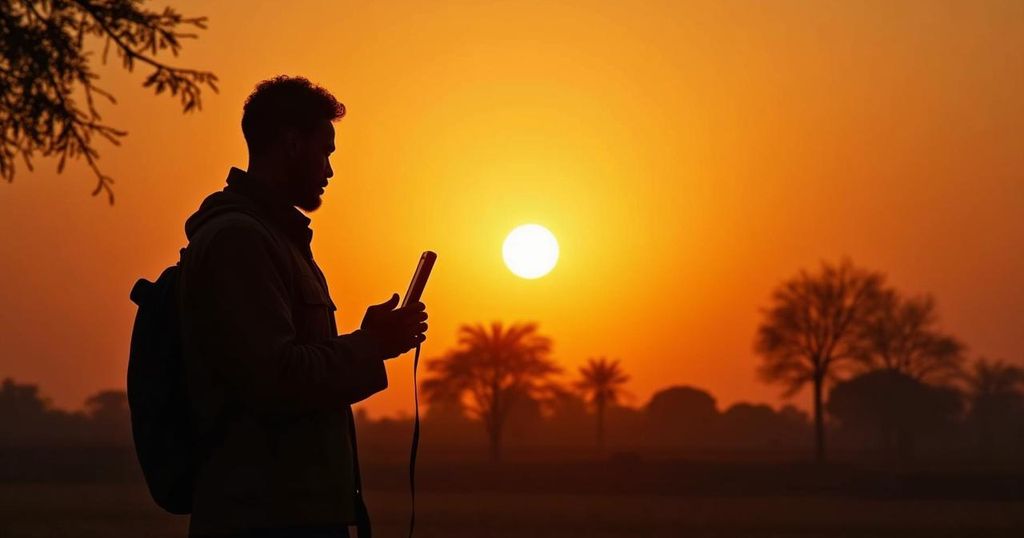Wassim Nasr, a France 24 journalist, is under investigation by prosecutors in Burkina Faso, Mali, and Niger for alleged support of terrorism in his reporting on jihadism. France 24 and various journalism organizations have come to his defense, condemning these accusations as unfounded and a violation of press freedoms. The situation highlights ongoing challenges to journalistic integrity and safety in the Sahel region, marked by authoritarian regimes and increasing risks for media professionals.
Wassim Nasr, a journalist for France 24, is currently under investigation following allegations from the judicial authorities in Burkina Faso, Mali, and Niger regarding his reporting on jihadist and extremist movements in the Sahel region. On September 25, prosecutors from the three nations publicly indicated that thorough analyses of Nasr’s media contributions suggested he made remarks supportive of terrorist actions in the area. In his defense, Nasr articulated on social media platform X, “I have been reporting on this subject for 15 years, I have disturbed many people, but I have the luxury of being in a country where this profession remains protected.” France 24’s Director, Amaury Guibert, has come forth to support Nasr, asserting that the charges are serious and unfounded, stating that they represent an ongoing threat to press freedom both locally and for international journalists, emphasizing the region’s status as a “black hole of information.” The network faced an operational suspension in Burkina Faso in March 2023 and in Mali in 2022. Additionally, the International Federation of Journalists (IFJ) and the European Federation of Journalists (EFJ) have expressed their solidarity with Nasr, urging authorities to rescind the baseless accusations against him. They articulated that criminalizing journalists for their investigative work infringes upon international principles governing press freedom and that journalists should be able to report on sensitive issues like terrorism without the looming threat of legal repercussions.
The Sahel region, including Burkina Faso, Mali, and Niger, has increasingly become a hotspot for jihadist activity and extremism. Reporting in this area is not only challenging due to the security risks involved but also involves navigating a complex political landscape where media freedom is often compromised. The allegations against Wassim Nasr highlight the tensions between government narratives and journalistic reporting, as well as the broader implications for press freedom in authoritarian contexts that may regard investigative journalism as a threat.
The investigation into Wassim Nasr raises significant concerns regarding press freedom in countries plagued by extremist violence. The accusations against him signify a troubling trend where journalists face legal threats for their reporting on sensitive issues. Support from France 24 and international journalism organizations underscores the importance of protecting the rights of journalists to report without fear of prosecution. Such protection is essential for fostering an informed public and ensuring accountability in regions where violence and terrorism persist.
Original Source: www.ifj.org







